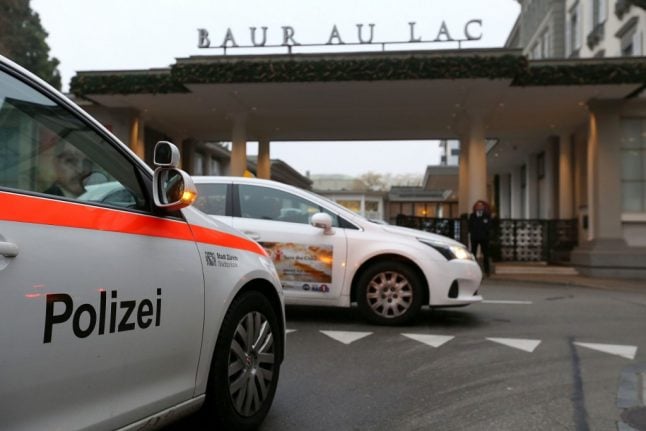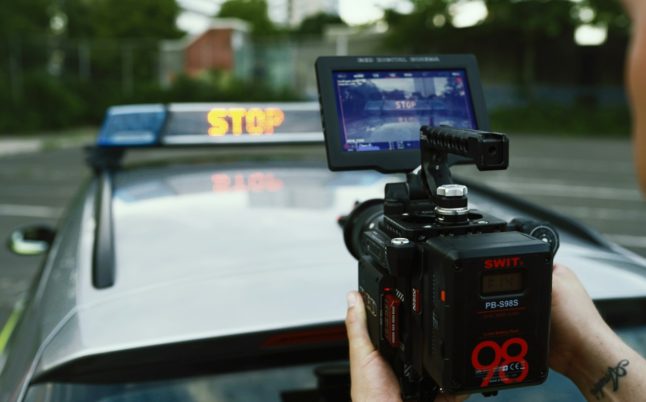In 2023, around 80,000 drivers had their licenses withdrawn, for varying periods of time, because they were caught speeding.
This is what emerges from statistics published by the Federal Roads Office (OFROU) in March 2024.
In fact, driving too fast (that is, above the posted speed limit) is the most common reason for license suspensions, OFROU data shows.
It goes without saying (but should probably be repeated) that though speed limits on Swiss roads may be different from those in other countries, foreign drivers driving in Switzerland must respect them.
READ ALSO: Do I have to pay a fine if I get caught speeding in Switzerland in a foreign car?
What are the speed limits in Switzerland?
The maximum allowed speed is determined by the roads and areas in which you travel.
On motorways it is 120 km/h, reduced to 100 km / h on main roads (Autostrassen / semi-autoroutes / semiautostrade).
On roads in built-up areas located outside towns, the speed is 80 km / h, and in the cities, 50 km /h.
Then there are some streets near schools, in residential areas or in villages, where the speed is reduced to 30 km / hour.
Speed limits can also be temporarily adjusted in the event of road repairs or construction work.
What are the penalties for speeding?
Again, it depends on where you are caught and how fast you were driving.
If you exceed the speed limit by up to 5 km / h, your fine will be 20 francs on the motorway and 40 francs if the infraction happened on main or secondary roads.
The fine for driving between 6 and 10 km / h over the legal limit is 60 francs on the motorway, 100 on the main roads, and 120 francs in built-up areas.
Driving 11 to 15 km/h over the maximum speed will cost you 120 francs on the motorway, 160 on the main road, and 250 in built-up areas.
Exceeding the limit by over 16 to 20 km/h gets you in more trouble: 180 francs on the motorway and 240 on the main road. But if you get caught dashing at this speed through a built-up area, you will be issued a heftier fine or a summons to appear in court.
You will receive a payment slip by registered letter, which will also include a form to fill out. You will be asked whether you or someone else was the driver.
Designating someone else as the guilty party may backfire, however. More often than not, your infraction is caught on camera, showing who the speeding driver is.
You can pay the fine with the payment slip or, if you truly think you are falsely accused, you can appeal the decision and go to court.
But realistically speaking, the odds of winning are slim to none.
Wait, there’s more
For serious speeding offences in excess of 25 km/h, additional penalties will be imposed.
For instance, your driver’s license may be suspended for a period ranging from one to three months, depending on the speed and the location.
Additionally, If you exceed the speed limit by 25 km/h in built-up areas, 30 km/h on main roads, or by 35 km/h on the motorway, your offence will be recorded in the register of criminal convictions and will remain there, for all to see, for a certain period of time.
It would not look good if you are looking for a job or an apartment, as employers and landlords routinely ask to see a copy of your criminal record.
Also, if you cause an accident while speeding or if you drive drunk, penalties would be more significant.
In Switzerland, the maximum permitted alcohol level while driving is 0.05 percent. This is in line with most European countries.
What happens if you are a repeat offender?
You may lose your driving privileges.
In case of excessive speeding violations, your driver’s license will be taken away. You will also have to be assessed by a psychologist to see if you have any mental disorders that would permanently disqualify you from driving.
READ MORE: The ways you could lose your driving license in Switzerland



 Please whitelist us to continue reading.
Please whitelist us to continue reading.
Member comments